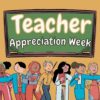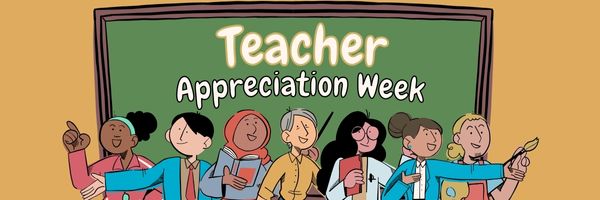Category: Teaching
What You Might Have Missed in May–What’s up in June
Here are the most-read posts last month:
- May is Homeschooling Awareness Month
- Tech Teacher Appreciation Week
- 20+ Online Resources for Screenshots, Screencasts, Screenshares
- Happy Mother’s Day!
- How to Set Yourself Up for Success Toward a Career in Electrical and Computer Engineering
- Top Grant Sources to Bring Technology to Under-Resourced Classrooms
- 17 Video Creation Online Tools
- Tech Tips to End the School Year
- 50 Websites About Animals
- Photoshop Artwork
Here’s a preview of what’s coming up next month (our publications will be slower in summer to reflect readers): (more…)
Share this:
- Click to share on Facebook (Opens in new window) Facebook
- Click to share on X (Opens in new window) X
- Click to share on LinkedIn (Opens in new window) LinkedIn
- Click to share on Pinterest (Opens in new window) Pinterest
- Click to share on Telegram (Opens in new window) Telegram
- Click to email a link to a friend (Opens in new window) Email
- More
Tech Teacher Appreciation Week
Tech Teacher Appreciation Week
If you wonder what’s so hard about being a teacher, look at this list of challenges they faced the last few years: (more…)
Share this:
- Click to share on Facebook (Opens in new window) Facebook
- Click to share on X (Opens in new window) X
- Click to share on LinkedIn (Opens in new window) LinkedIn
- Click to share on Pinterest (Opens in new window) Pinterest
- Click to share on Telegram (Opens in new window) Telegram
- Click to email a link to a friend (Opens in new window) Email
- More
What You Might Have Missed in April–What’s up in May
Here are the most-read posts for the past month:
- National Library Week–Resources, Links, Ideas
- 17 K-8 Digital Citizenship Topics
- April is Financial Literacy Month
- 15 Best Technology Careers for the Future in 2025
- Basics in Every Lesson Plan
- Join me to launch my Indie Book
- Easter Classroom Resources
- Great App to Teach Spelling
- Summer STEM at USNA
- Earth Day Class Activities
Here’s a preview of what’s coming up: (more…)
Share this:
- Click to share on Facebook (Opens in new window) Facebook
- Click to share on X (Opens in new window) X
- Click to share on LinkedIn (Opens in new window) LinkedIn
- Click to share on Pinterest (Opens in new window) Pinterest
- Click to share on Telegram (Opens in new window) Telegram
- Click to email a link to a friend (Opens in new window) Email
- More
Tech Tip #125: Basics in Every Lesson Plan
In these 169 tech-centric situations, you get an overview of pedagogy—the tech topics most important to your teaching—as well as practical strategies to address most classroom tech situations, how to scaffold these to learning, and where they provide the subtext to daily tech-infused education.
Today’s tip: Basics in Every Lesson Plan
Here are four skills to be included and reinforced in every lesson plan. Don’t teach them! Blend them into your core lessons, as part of the workflow. Include them as you do when you teach reading (in non-reading classes), using a pencil, and handwriting:
- Keyboarding
- Digital citizenship
- Vocabulary
- Problem solving
For the other two, watch this video:
–summarized by NoteGPT
Summary
In this informative video, Jacqui Murray discusses effective technology integration in K-8 classrooms, highlighting the current supportive landscape for using technology in education. Murray emphasizes that this is an ideal time to be involved in teaching technology, whether or not one considers themselves a tech expert. The discussion begins with an introduction to Murray’s extensive experience in education, focusing on technology’s role in lesson delivery and integration into the curriculum. She introduces six key topics or “strands” that are essential for creating engaging lessons that reflect modern educational standards, blending subjects together rather than treating them in isolation.
The six strands include digital citizenship, keyboarding skills, problem-solving, research skills, vocabulary expansion, and publishing and sharing. For each topic, Murray offers practical strategies for teaching and integrating them into existing lesson plans. She talks about how to establish a foundation of digital citizenship by making students aware of online safety and etiquette from early grades. Murray discusses the necessity of keyboarding skills in today’s tech-driven world and how to incorporate them seamlessly into instruction.
Murray further explores the importance of problem-solving skills, encouraging students to troubleshoot and find solutions independently. She emphasizes safe and effective research tactics, urging students to critically evaluate sources. Expanding vocabulary through digital tools is highlighted, as is the critical element of sharing and publishing student work for collective learning and empowerment. Ultimately, Murray encourages teachers to view these strands as a cohesive framework that enhances learning and prepares students for future academic challenges.
Highlights
- 🎓 The importance of blending subjects to create cohesive lessons that reflect modern educational standards.
- 💻 Digital citizenship is essential from an early age, requiring ongoing discussions about online safety and etiquette.
- ⌨️ Keyboarding skills should be integrated into lessons, enhancing students’ competency with technology.
- 🛠️ Problem-solving skills transform students into independent learners who can troubleshoot tech issues.
- 🔍 Research skills empower students to critically evaluate sources, making them more informed consumers of information.
- 📚 Vocabulary expansion is essential in education, encouraging students to actively engage with words and definitions.
- 🔗 Publishing and sharing student work creates a sense of community and enhances collaborative learning.
Key Insights
- 🌐 Digital Citizenship is Essential: Murray highlights that it’s crucial to integrate discussions about digital citizenship into lessons at every grade level. This approach trains students to navigate the online world safely and responsibly, emphasizing that education about digital behavior is continuous and should evolve as students progress in their understanding of technology.
- 💡 The Role of Keyboarding Skills: Teaching keyboarding isn’t merely an added layer; it’s essential for enhancing classroom efficiency. By embedding keyboarding education into daily lessons, teachers equip students with necessary tools for success across subjects. This practice fosters dexterity that will serve students well in their digital interactions, allowing them to focus more on the content rather than the act of typing.
- 🔄 Encouraging Problem-Solving: Murray’s emphasis on fostering problem-solving abilities reflects a shift toward student autonomy in learning. By guiding students to find solutions independently, teachers streamline classroom management and empower students to take control of their learning experiences, ultimately making the educational process more dynamic.
- 🔍 Effective Research Skills: Educators must emphasize the importance of teaching students how to ascertain reliable information online. By preparing them to discern reputable sources from biased or misleading content, students become not only consumers of knowledge but also critical thinkers capable of navigating the complexities of information on the internet.
- 📖 Vocabulary Matters: The intentional teaching of vocabulary through multiple mediums can enhance comprehension and engagement. Murray suggests that using technology to aid vocabulary acquisition allows students to seek definitions and gain deeper understanding dynamically, rather than superficially glossing over complex content.
- 🌐 Collaborative Learning Through Sharing: Emphasizing the importance of publishing and sharing work transforms how students interact with their learning. In fostering an environment where students contribute to a collective body of knowledge not only democratizes learning but also leverages peer feedback for continuous growth, helping students to learn from one another.
- 🤝 Integration Across Subjects: Murray’s call for the integration of the six strands across disciplines underlines education’s interconnectedness. Teachers should consider these elements as intertwined rather than isolated, optimizing educational outcomes by enhancing student engagement and contextual understanding across subjects.
To finish up, read this article:
“What is the 21st Century lesson plan”
Sign up for a new tip each week or buy the entire 169 Real-world Ways to Put Tech into Your Classroom.
What’s your favorite tech tip in your classroom? Share it in the comments below.
Share this:
- Click to share on Facebook (Opens in new window) Facebook
- Click to share on X (Opens in new window) X
- Click to share on LinkedIn (Opens in new window) LinkedIn
- Click to share on Pinterest (Opens in new window) Pinterest
- Click to share on Telegram (Opens in new window) Telegram
- Click to email a link to a friend (Opens in new window) Email
- More
What You Might Have Missed in March–What’s up in April
Here are the most-read posts for last month:
- How to Leverage AI Tutors for Effective Learning Tips for Parents, Educators, and Students
- Subscriber Special: 50% Off Sidebar Sponsors
- Didn’t Get in College? Interested in the Military? Try NAPS
- 11 Ways X/Twitter Improves Education
- LOTS of Resources for Kids’ Online Research
- Celebrate Pi Day and Maths Day
- 9 St. Patrick’s Day Resources For Your Class
- Minecraft Builds Coding Skills
- Invention Convention 2025 is coming
- Websites that add sparkle (and learning) to Spring
Here’s what’s coming up next month: (more…)
Share this:
- Click to share on Facebook (Opens in new window) Facebook
- Click to share on X (Opens in new window) X
- Click to share on LinkedIn (Opens in new window) LinkedIn
- Click to share on Pinterest (Opens in new window) Pinterest
- Click to share on Telegram (Opens in new window) Telegram
- Click to email a link to a friend (Opens in new window) Email
- More
What You Might Have Missed in February–What’s up in March
Here are the most-read posts for the past month:
- 13 Online Resources About Kids News Resources
- Random Acts of Kindness Day is Coming. How Will You Celebrate?
- Integrating Technology in Education for Modern Classrooms
- 11 Valentine Sites For Students K-2
- How to Make Learning Math More Interactive and Engaging
- Engineers Week Feb. 16-22 2025
- President’s Day Activities Feb. 17, 2025
- Unlocking Learning Fun: How Educational Bini Games Foster Child Development
- Tech Tip #107: Ways to Avoid Phishing
- 25+ Video Collections
Here’s a preview of what’s coming up this month: (more…)
Share this:
- Click to share on Facebook (Opens in new window) Facebook
- Click to share on X (Opens in new window) X
- Click to share on LinkedIn (Opens in new window) LinkedIn
- Click to share on Pinterest (Opens in new window) Pinterest
- Click to share on Telegram (Opens in new window) Telegram
- Click to email a link to a friend (Opens in new window) Email
- More
What You Might Have Missed in December–What’s up in January
Here are the most-read posts for the month of December:
- Three Projects to Kick Off the Holidays
- 7 Online Resources About Creating a #MakerSpace
- Five Must-Do Skills to Accomplish During High School
- Holiday Gifts for Teachers
- 14 Holiday Websites and 5 Projects
- Where did Christmas Come From?
- A Shout Out for My Donate Button
- New Year, New Mindset
- Happy Holiday! See You Jan. 2nd!
Here’s a preview of what’s coming up in January: (more…)
Share this:
- Click to share on Facebook (Opens in new window) Facebook
- Click to share on X (Opens in new window) X
- Click to share on LinkedIn (Opens in new window) LinkedIn
- Click to share on Pinterest (Opens in new window) Pinterest
- Click to share on Telegram (Opens in new window) Telegram
- Click to email a link to a friend (Opens in new window) Email
- More
What You Might Have Missed in November–What’s up in December
Here are the most-read posts for the past month:
- Tips for Supporting Students With Special Needs Using Technology
- 26 Online LMS Resources
- 7 Ways to Evaluate Websites
- National STEM Day Nov. 8th
- A Day to Remember Veterans
- Geography Awareness Week: November 11-15, 2024
- How to Put Kindness in Your Classes
- 4 Critical Pieces of Every Lesson and How to Gamify Them video
- 14 Apps and 2 Projects for Thanksgiving
- Thanksgiving Activities That Keep You in Charge of Learning
Here’s a preview of what’s coming up:
- What’s happening on my writer’s blog
- Three projects to kick off the holidays
- 7 online resources about Maker Spaces
- 14 holiday websites and 5+ projects
- We’re closed for the holidays!
–image credit to Deposit Photo
Here’s the sign-up link if the image above doesn’t work:
https://forms.aweber.com/form/07/1910174607.htm
“The content presented in this blog are the result of creative imagination and not intended for use, reproduction, or incorporation into any artificial intelligence training or machine learning systems without prior written consent from the author.”
Jacqui Murray has been teaching K-18 technology for 30 years. She is the editor/author of over a hundred tech ed resources including a K-12 technology curriculum, K-8 keyboard curriculum, K-8 Digital Citizenship curriculum. She is an adjunct professor in tech ed, Master Teacher, freelance journalist on tech ed topics, and author of the tech thrillers, To Hunt a Sub and Twenty-four Days. You can find her resources at Structured Learning.
Share this:
- Click to share on Facebook (Opens in new window) Facebook
- Click to share on X (Opens in new window) X
- Click to share on LinkedIn (Opens in new window) LinkedIn
- Click to share on Pinterest (Opens in new window) Pinterest
- Click to share on Telegram (Opens in new window) Telegram
- Click to email a link to a friend (Opens in new window) Email
- More
What You Might Have Missed in October–What’s up in November
Here are the most-read posts for the past month:
- ASVAB or a Service Academy? You Decide.
- Warm-ups–Watch the video
- Compare-contrast Digital Tools
- 70+ Online Resources to Gamified Education
- Digital Citizenship Week: What to Teach When–a video
- Digital Citizenship Resources–Lots of Them
- 12 Projects to Teach Digital Citizenship–by Grade
- Teach Speaking and Listening Skills with Student Presentations–the video
- National Bullying Prevention Month
- 13 Ways to Use Canva in Your Classroom
Here’s a preview of what’s coming up: (more…)
Share this:
- Click to share on Facebook (Opens in new window) Facebook
- Click to share on X (Opens in new window) X
- Click to share on LinkedIn (Opens in new window) LinkedIn
- Click to share on Pinterest (Opens in new window) Pinterest
- Click to share on Telegram (Opens in new window) Telegram
- Click to email a link to a friend (Opens in new window) Email
- More
What You Might Have Missed in September–What’s up in October
Here are the most-read posts for the past month:
- 18 Digital Tool Musts in the Classroom — a Video
- Introducing the Makeblock mBot2: A Fun and Educational AI Robot for Coding
- 9 Reasons to Use Digital Books
- The Role of Phosphorus Properties in Sustainable Technology for Classrooms
- Tips for Teachers to Balance the Demands of School Events and Their Personal Lives
Here’s a preview of what’s coming up:
- Warm Ups–watch the video
- 6 Online Resources About Letters
- Subscriber Special
- Tech Tips
- Online Resources About Gamified Education
- Digital Citizenship
- Google Street View
- Speaking and Listening Skills
- Canva in Your Classroom
- Tips on Internet Research
–image credit to Deposit Photo (more…)
Share this:
- Click to share on Facebook (Opens in new window) Facebook
- Click to share on X (Opens in new window) X
- Click to share on LinkedIn (Opens in new window) LinkedIn
- Click to share on Pinterest (Opens in new window) Pinterest
- Click to share on Telegram (Opens in new window) Telegram
- Click to email a link to a friend (Opens in new window) Email
- More










































